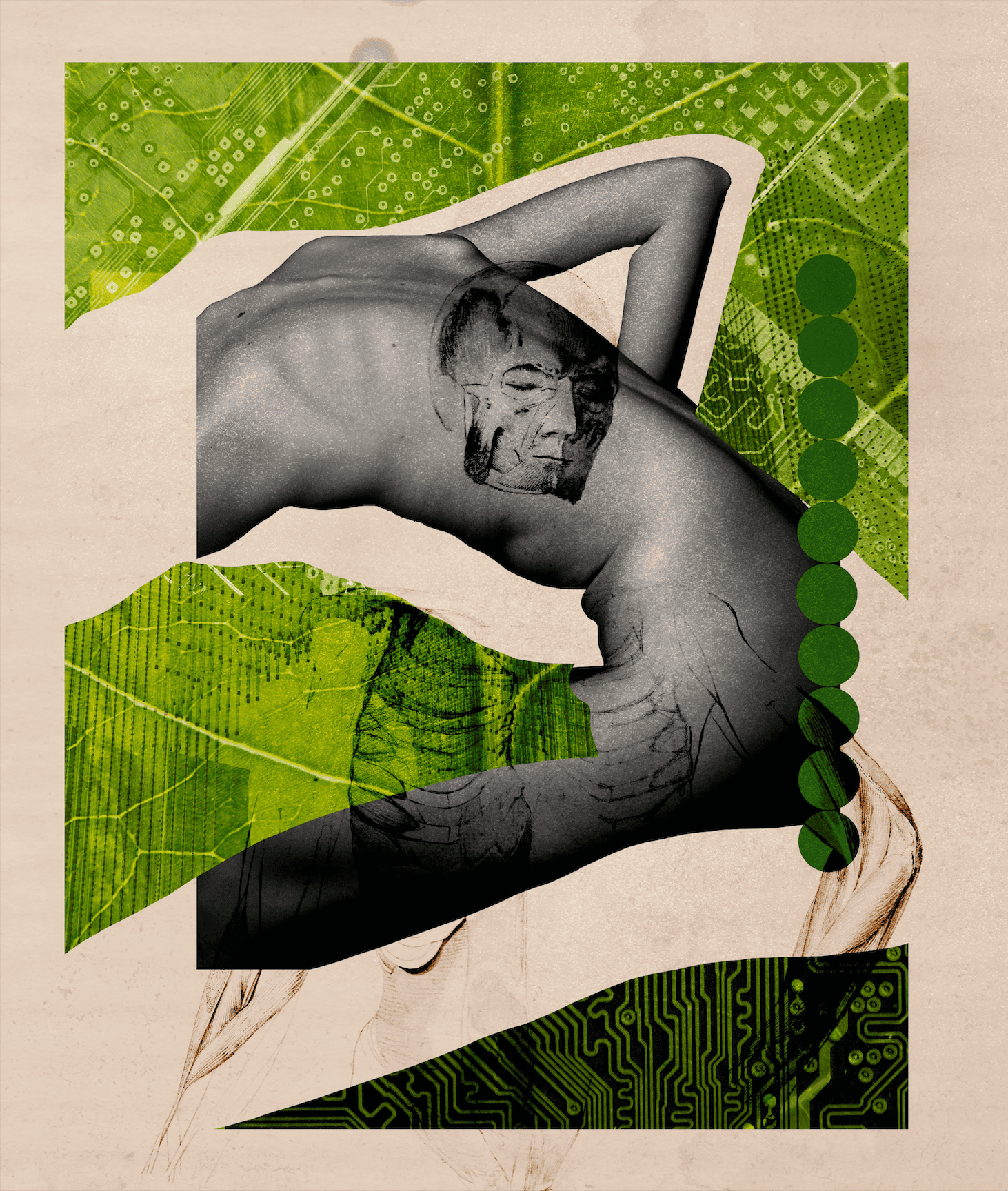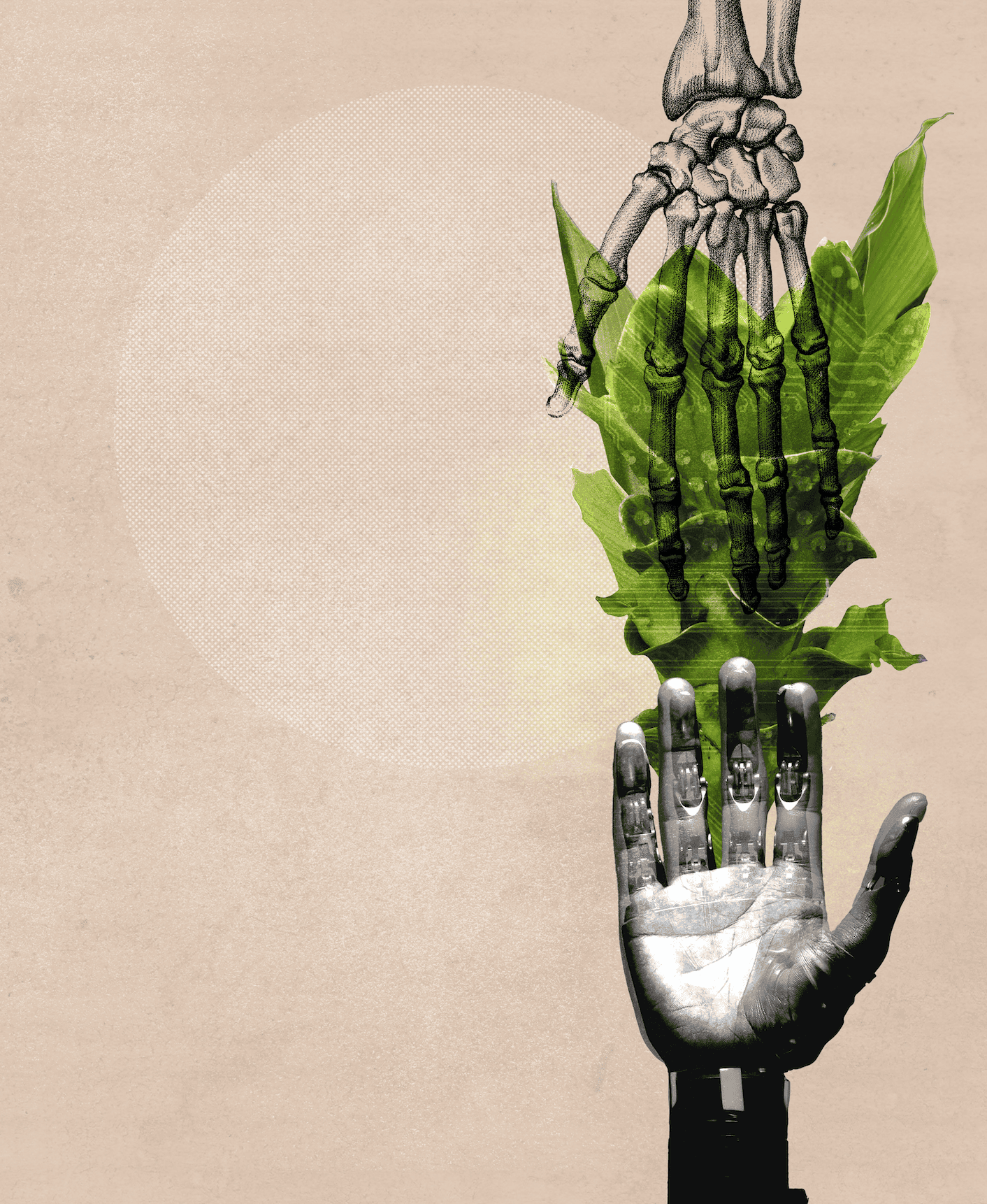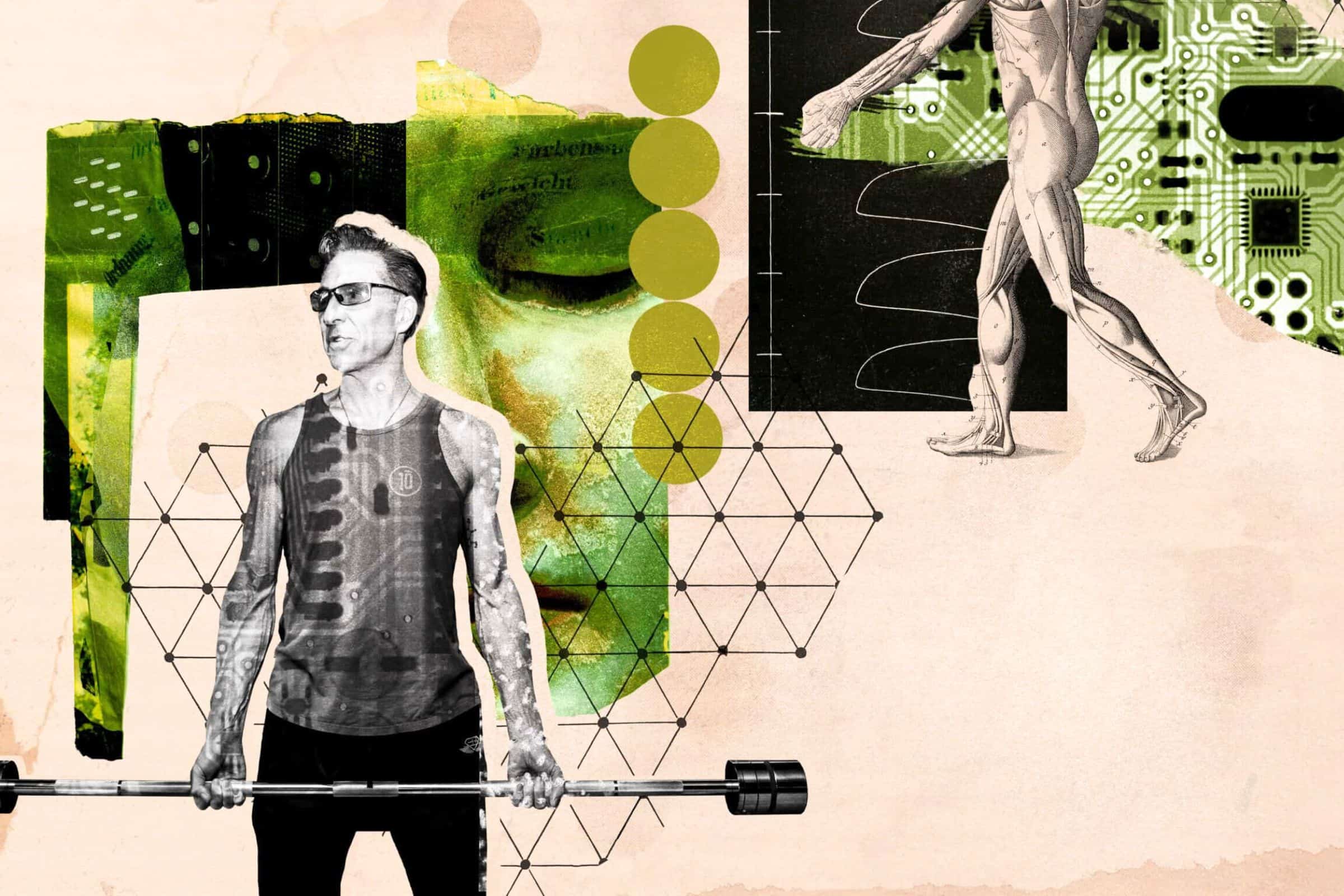All products featured on ArtfulLiving.com are independently selected by our editors. We may earn commission on items you choose to buy.
Long before Netflix’s bombshell documentary on longevity maverick Bryan Johnson turned your neighbor into an expert on the health of his mitochondria, another wealthy entrepreneur was tinkering around with his own formula for cheating death. Meet Dave Asprey, the “Father of Biohacking.”
In his twenties, Asprey weighed 300 pounds, and his 46-inch waist could barely fit into an XXL T-shirt. Relentlessly long days working in Silicon Valley had left him with brain fog, arthritis and pre-diabetes. Eighteen months of exercising 90 minutes daily on a strict low-fat, low-calorie, plant-centric diet hadn’t worked. “It was not a lack of effort,” Asprey says. “It was a lack of knowledge.” Determined to reclaim his health, he began experimenting, applying many of the same data-based hacks he learned from working in tech to his body. He started tracking and regulating his hormones, diet, sleep, blood sugar, exercise and stress, noting the inflammation he experienced when any one of these key systems was out of sync.

Illustration by Eleanor Shakespeare
Asprey not only lost 100 pounds and cleared his brain fog, he also claims to have reversed his biological age by 20 years and increased his IQ by over 12 points. He went on to create the wildly successful Bulletproof Coffee (a “keto coffee” made with grass-fed butter or ghee and MCT oil that’s designed to increase energy and mental clarity) and is widely credited with coining the term “biohacking” (Asprey’s name is in the Merriam-Webster dictionary definition of biohacker).
At its best, biohacking uses technology — as well as simple daily adjustments — to extend longevity and boost performance, health and vitality. (At its worst, biohacking conjures five-day water fasts and pseudo-scientific hacks like penile injections.) Some of the newer therapies involve cycling psychedelics, therapeutic plasma exchange and gene therapy.
Asprey, who is not a medical doctor, is not without legal troubles — or critics. In 2020, the Federal Trade Commission (FTC) sent him a warning letter regarding false declarations he made about his supplements’ ability to prevent and treat COVID-19, citing the lack of scientific evidence to support his claims. Asprey was required to cease making such statements and declined to comment on the incident. And his high-fat, low-carb “Bulletproof Diet” has also come under heavy scrutiny. “This diet can help people lose weight initially, but with most of the food coming from fat, it can be challenging to sustain long-term,” says Samantha Lynch, a registered dietitian nutritionist who specializes in integrative and functional nutrition.
Despite these controversies — and his lack of formal medical training — Asprey is still invited to lecture to thousands of doctors at medical conferences. There, he’s not one to tone it down. “I’ve got to get real with people when the doctors won’t,” Asprey says. “You can’t take away my medical license because I don’t have one,” he says.

Today, at 51, the four-time New York Times bestselling author of The Bulletproof Diet and Smarter Not Harder is 200 pounds with 4.8% body fat and an epigenetic age of 31.5 years old, according to a TruDiagnostic test (an at-home blood test that analyzes DNA to determine one’s true biological age). And with his popular podcast, The Human Upgrade, he is determined to share his hard-earned wisdom about health and longevity with the world. “We normalize obesity, metabolic dysfunction, hypertension, diabetes and early aging,” he says. “But we can do better. There are lots of ways to take control of your biology.”
His newest venture, Danger Coffee, is free of neurotoxic mold (a common coffee contaminant, he says) and packed with minerals that our bodies need. Though he stepped down as the CEO of Bulletproof Coffee in 2019, he has founded eight other companies, including Upgrade Labs, a longevity clinic where would-be “super agers” can test-drive many of Asprey’s favorite biohacks. At 40 Years of Zen, a five-day, $16,000 personal development retreat he hosts outside of Seattle, Hollywood celebrities, C-suite execs and professional athletes can sample cutting-edge treatments like neurofeedback, brain mapping and low-dose cyclic ketamine treatments. “Combining ketamine with neurofeedback creates a synergistic effect where the neuroplasticity induced by each method is amplified,” Asprey says.
If the thought of spending five days with electrodes stuck to your head makes you want to swan dive into a pint of Ben & Jerry’s, fear not. Asprey’s biohacking blueprint has some core principles that even the most hardcore skeptics can get behind.
Dave Asprey’s Longevity Blueprint
Optimize Sleep
In addition to tracking your sleep and avoiding food within three hours of sleep, he recommends sleeping in total darkness. Cover all blue lights with tape and use blackout curtains with Velcro at the edges. He suggests using dimmers to keep lights at candlelight level. “LEDs take two seconds to scramble the timing system of your brain.”
Balance your Hormones
Asprey is a big believer in bioidentical hormones (Editor’s note: although such plant-based versions are often viewed as safer than traditional synthetic HRT, there is no credible evidence to prove this.) Hormone Replacement Therapy (HRT) can prevent symptoms of hormonal imbalances that kickstart the aging process in men and women and is proven to protect bone and cardiovascular health. “If you supplement with hormones at the right age — and the age varies based on people — there is now so much evidence it reduces all-cause mortality risk,” says Asprey.
Eat with Intention
In general, Asprey advocates eating an organic, whole-foods diet rich in healthy fats (omega-3s) and antioxidant-rich vegetables and fruits. Asprey avoids artificial ingredients and seed oils like canola, soybean and corn (high in pro-inflammatory omega-6 fatty acids). While he doesn’t eschew red meat, he only eats grass-fed steak and favors white rice over brown (brown rice can contain 80% more arsenic than white, according to The National Celiac Organization). Bottom line: “You want to eat foods that nourish you without a lot of toxins,” he says.
Exercise Smarter, not Harder
Asprey doesn’t push sustained, hardcore workouts as aggressively as one might imagine. Although regular exercise has been shown to reduce the risk of mortality by strengthening vascular health and lowering systemic inflammation, overexercising can hurt your joints and increase cortisol levels, he says. In his book, Smarter Not Harder, Asprey advises readers to “tap the power of laziness” to exercise in the most mindful, efficient way possible. “You want to have the biomarkers of working out without over-exercising,” he says. He exercises for 20 minutes a week; he claims his two, precisely targeted, 10-minute workouts allow him to build adequate muscle mass and strength while maintaining a solid “VO2 Max” (a cardiovascular biomarker that measures how efficiently your body consumes oxygen during exercise). Supporting his less-is-more approach: Recent research out of the University of Massachusetts Amherst found that walking just 7,000 steps per day can reduce the risk of premature death by 50-70% in people ages 38 to 50. Interestingly, walking more than 10,000 steps a day did not further reduce the risk.
De-stress and Connect
“It’s important to learn the skill of chill,” says Asprey. In addition to meditation, breath work and other forms of stress reduction, he also recommends prioritizing relationships. Studies show that social connection improves cardiovascular functioning, reduces susceptibility to inflammation and viral disease, sharpens cognition, reduces depression, lowers stress, and yes, it can even slow biological aging.
“I schedule social time on my calendar just like I schedule work — it’s that important,” Asprey says. He recalls a conversation with Eric Kandel, a neuroscientist and Nobel Prize winner. When asked about the secret to living a long happy life, Kandel said emphatically, “Have a really good [partner].”


